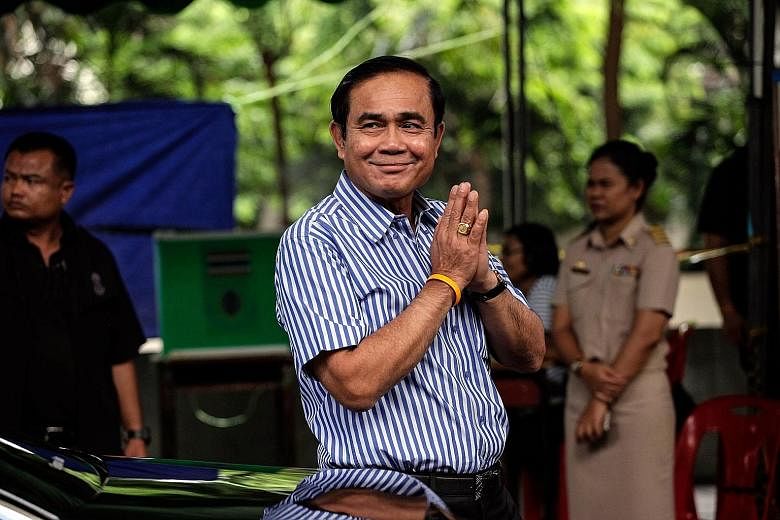BANGKOK • Former Thai prime minister Abhisit Vejjajiva and academics in the country have raised objections to delaying Thailand's upcoming election, saying a delay on the basis of required legislative process could no longer be justified.
Their response came after Prime Minister Prayut Chan-o-cha said last week that the government may announce elections next year, but that the polls could be held in 2019.
Since he took power nearly four years ago, the junta head has promised at least four times to give an election date.
Last week, Mr Prayut told United States President Donald Trump that an election date would be announced next year without any further postponement.
Mr Prayut had said that the election would be organised within 150 days after essential laws are ratified, and that this should be completed by November next year.
Given Mr Prayut's timeline, the election could be held in March or April 2019.
Mr Abhisit, leader of the Democrat Party, said that citing legislation as the cause for postponing elections may not be reasonable.
The process leading up to the polls should follow the framework set by the Constitution, he said.
In addition, that work should have been done smoothly because every legislator came from within the coup-backed circle, or the so-called "five rivers of power", which refers to the five bodies controlling the current government, he added.
"Now, please, do not send any more signals to put off the vote or drag it out because this leads only to more issues and risks causing conflict in the future," Mr Abhisit said.
"The ambiguity is not good for anyone."
Political scientist Sirote Klampaiboon said he believed a quicker process was possible as not many revisions to the law were needed.
Despite Mr Prayut's recent promise, the academic said he believed the prospect of early polls were slim. "In reality, General Prayut has announced officially at least twice that an election would be held. Once when he visited Japan and met with Prime Minister Shinzo Abe, and the other time, he told Ban Ki Moon, a former United Nations secretary-general.
"(Yet) the election was still postponed," he added.
Thammasat University political scientist Attasit Pankaew said the "road map to democracy", which dictates major points of the junta's plans, including the election, was a key reference point for the regime.
When it kept changing, it reflected political instability, which ultimately could affect everything from society to the economy, he said. "It is a point of concern because it involves national stability," the academic added.
THE NATION/ASIA NEWS NETWORK

